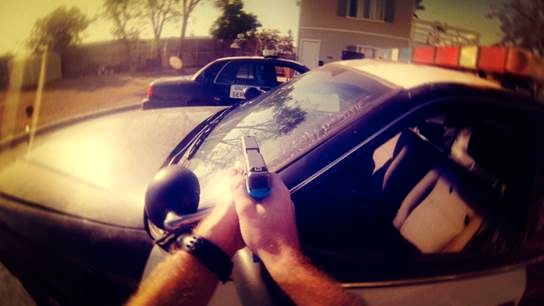Any time an experienced police officer attends a law enforcement graduation ceremony, he tends to reflect on his own ceremony, years before, and expect something similar.
While the pomp and circumstance may not have changed, the type of recruit that graduates certainly has.
On Jan. 15, I had the pleasure of attending the Orange County Sheriff’s Regional Training Academy graduation. Basic Academy Class 213 graduated 43 recruits from 18 different law enforcement agencies from Los Angeles and Orange counties.
What took me most by surprise was that the police officer of today is far more educated than your “grandfather’s police officer.”
As the ceremony progressed, each introduction of the 43 recruits also included a summary of their impressive educational accomplishments. There was everything from associate’s degrees, bachelor’s degrees and master’s degrees. Distinguished universities such as St John’s University, UC Irvine, USC, Cal State Long Beach and Cal State Fullerton were represented.
The impact of a college-educated police force has been studied by many, including Dr. Rebecca Paynick. She concludes that college-educated officers write better reports, have better citizen contacts, have a better understanding of the law and civil rights issues, are more professional, and place a high value on ethical conduct. There is little debate that the positive impact of a highly educated officer is the trend in law enforcement.
Not only are we graduating a different type of recruit today, but the graduating recruit is also entering a more volatile environment than in the past. When I graduated from the academy 19 years ago, terrorism didn’t top our list of local safety concerns. Additionally, anti-police violence and attitudes are on the rise, especially here in California.
In 2014, California had 14 officers killed in the line of duty — more than any other state, according to the Officer Down Memorial Page. Two New York cops were murdered just because of the uniform they wore. ISIS and other terrorist groups have claimed a jihad against law enforcement all over the world, as recently seen in Canada and Paris. Perhaps more than any other time in our history, law enforcement definitely is a target.

Members of Basic Academy Class 213 participate in a memorial run in honor of Buena Park P.D. Detective Daniel Ackerman, who died at age 31 on July 30, 2011. Photo courtesy of OCSD
With all the education one may possess, education alone cannot prepare an officer to make split-second tactical decisions in the field. Tactics training can help mentally prepare officers for these situations. The impressive staff of tactics instructors at the Orange County Sheriff’s Academy hopefully has prepared these new recruits for the journey ahead. A balance of education, sound tactics, street smarts and sound advice make up an effective formula for an outstanding police officer.
Assistant Orange County Sheriff Linda Solorza gave an impressive keynote address at the graduation and had some sound advice for these young officers: enjoy the moment, work hard, do the right thing, be respectful, be honest and kind in your delivery and remain a student of the profession because it is forever changing.
My advice to the recruits is to put to memory one of Theodore Roosevelt’s quotes:
“It is not the critic who counts; not the man who points out how the strong man stumbles, or where the doer of deeds could have done them better. The credit belongs to the man who is actually in the arena, whose face is marred by dust and sweat and blood; who strives valiantly; who errs, who comes short again and again, because there is no effort without error and shortcoming; but who does actually strive to do the deeds; who knows great enthusiasms, the great devotions; who spends himself in a worthy cause; who at the best knows in the end the triumph of high achievement, and who at the worst, if he fails, at least fails while daring greatly, so that his place shall never be with those cold and timid souls who neither know victory nor defeat.”
Nemeroff works as a detective for a Southern California police agency, lives in Orange County and holds a master’s degree in criminology, law and society from UC Irvine.
 Behind the Badge
Behind the Badge





